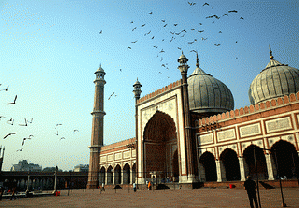Presidential hopeful Dr. Ben Carson recently said in a television interview that no Muslim should become the president of the United States. His remarks stem from the Islamophobia many have due to the horrible depiction of Islam by extremist groups like ISIS. Sharia law appears to be at the root of this fear. Polls show that most Americans have not met a Muslim in their lives. Most don't understand Islamic teachings either. Making a blanket statement about Islam based on the distorted depiction of a few so-called Muslims and ignoring the vast majority of law-abiding and peaceful Muslims is an intellectual fallacy. Here are five points every American needs to know about the Islamic teachings.
First, there is no concept of an "Islamic state" mentioned in the Quran. According to the Quran, the two guiding principles for governance are justice and freedom of religion. As long as these criteria are met, Islam does not get into how the government is run. You might be thinking of Sharia law and its forceful implementation. Islam, however, believes in the freedom of conscience and Sharia ought to be understood in this light. Only when the majority of the people accept a certain lifestyle, not by coercion but through conviction, they accept the framework to practice it. This is exactly the principle of a people's democracy. It can be as sophisticated as a society becomes or as shallow. Sharia is nothing but a code of conduct for Muslims prescribed in the Quran. Its implementation is not forced but adopted by those who adhere to it. Minorities'' rights in a Muslim majority state are protected through the above-mentioned principles of justice and freedom of religion.
Second, the concept of punishment in the Islamic Sharia is based on the principal of reformation. Islam has prescribed certain limits to establish a high level of morality in the society. The punishment for certain crimes mentioned in the Quran serves as a deterrent for the transgressors. Implementation of these punishments would vary based on the status of the society. For example, theft in an impoverished society where hunger and poverty are prevalent would not be punishable the same way as it would be in an affluent society where there is no compulsion to steal another's property.
Third, as citizens of a state, the Quran admonishes Muslims to obey the authorities: "Obey Allah, His messenger, and those in authority among you" (4:60). In case they find themselves at odds with the authorities, the Quran does not permit retaliation; instead it urges them to be patient. If matters are worse and Muslims are being persecuted, then Islam urges migration. The Quran does not sanction creating a state within a state or making any kind of disorder in society. In fact loyalty to one's homeland is part of a Muslim's faith.
Fourth, Islam puts a heavy responsibility on Muslims by defining their role in the society. According to the Quran, Muslims ought to enjoin good, forbid evil and excel each other in good works (3:115). Hence, just becoming an obedient citizen is not enough for a Muslim; he or she is required to be a productive citizen who benefits the society.
Fifth, Caliphate in Islam is not synonymous to the head of the state. Caliphate, according to the Quran (24:56), is purely a spiritual concept that is presented in the Quran as a reward to the God-fearing Muslims who are steadfast in their belief and who perform good deeds. The idea of Caliphate is to establish universal brotherhood among Muslims and to guide them in religious matters. Adherents to Caliphate can reside in different countries, follow their own country's laws and belong to different cultural setups, yet they are united on the Caliph's hand in spiritual matters. Violence, terror, bombings and creating disorder are far removed from what a true Islamic Caliphate stands for.
I urge my fellow Americans to study Islam and try to get firsthand knowledge about the Muslims. I also invite Muslims around the world to join hands in rejecting the distorted representation of Islam and raising a voice for a just and peaceful society.





